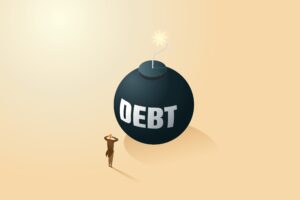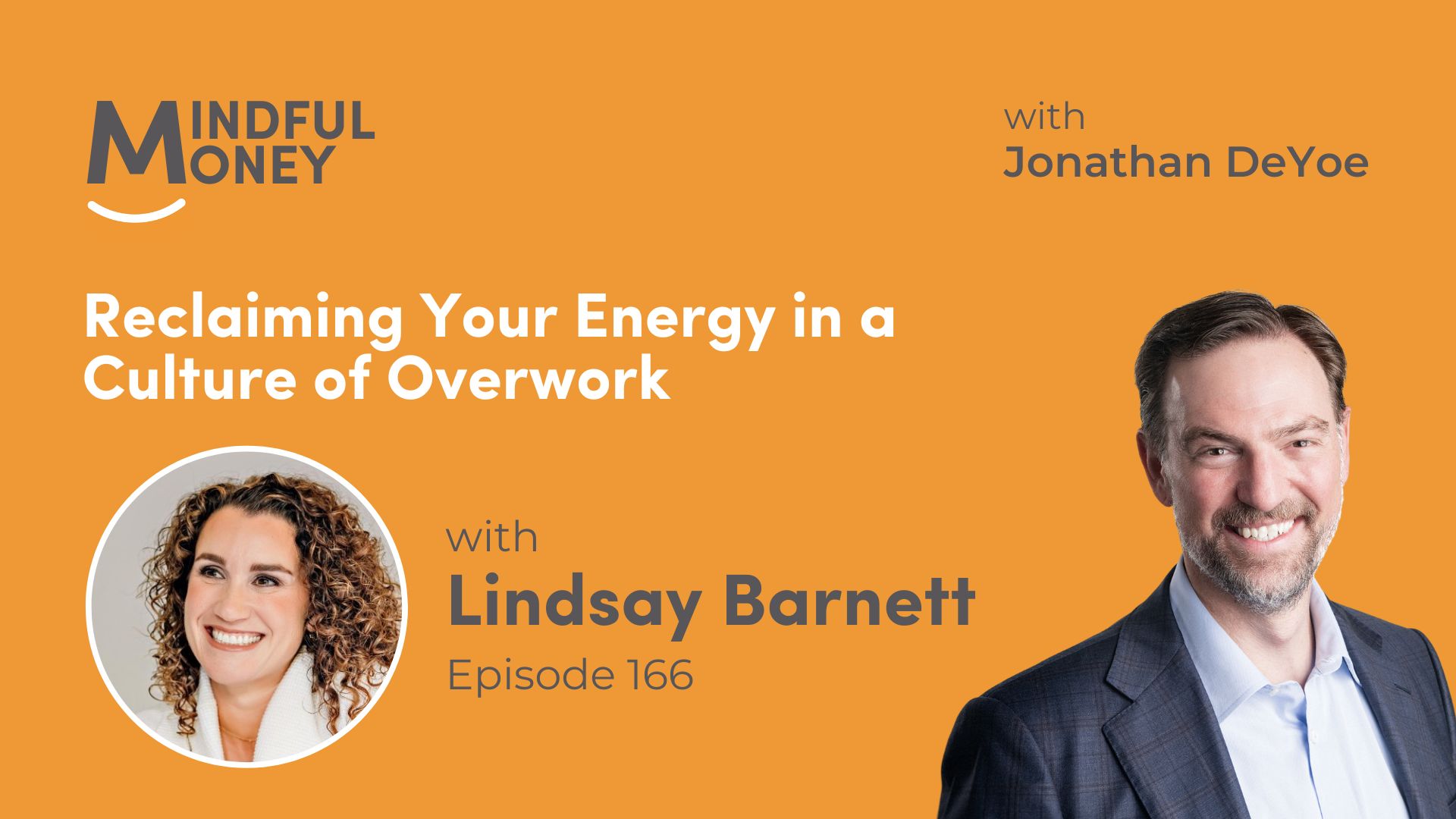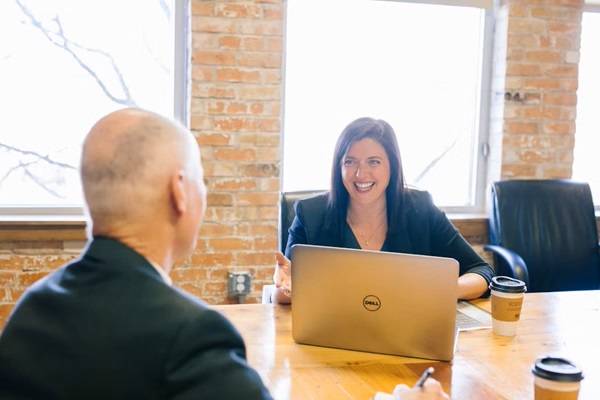There is a lot of ink spilled on the how’s and wherefore’s of deferring our gratification. But, with so many choices in front of us in every moment… why should we bother? Why not live in the moment, do what we want when we want, consume what we want when we want? Why should we put anything away for a rainy day when we could just as well benefit from its use right now or have an extra bit of fun today?
If you Google, “Why should I invest?” you will find the usual answers that range from the specific (goal achievement) to the general (build wealth), but these are incomplete. They are partial answers at best. They beg the question, “Why would I want to defer gratification today for a goal tomorrow or to build wealth?” Why do you? Why does anyone?
It’s Love. It has to be. It may be mixed with something like wisdom, but love must be the heart of the reason.
We know that the person we are today isn’t finished. Tomorrow we will wake up one step further along and, with any luck, we’ll keep doing that for years and decades to come. It’s wisdom to recognize that those future versions of ourselves will have wants and needs different from our own, and it is love that moves us to defer some of today’s gratification until tomorrow.
Love is why we invest.
The focus of our love is different for every person and changes throughout each of our lives. When we plan, we are looking at our current and future resources and picturing future loves and deferring our gratification for the imagined benefit of that future love. Deferring our gratification, investing for our future (any future) is an expression of love.
After thousands of conversations with clients, I have divided their many expressions of love into three categories: security, responsibility, and legacy. And, like Maslow’s hierarchy of needs, they are progressive. It is difficult to think about or even imagine legacy if you have not achieved a sense of basic security.
Security = Love
My dad’s business failed when I was three and my family didn’t have a regular income until I was in high school. For this reason, security — a sense of knowing there will be enough — has been the driving financial motivation of my life. I have felt, for much of my life, a sense of financial precariousness. I have always been one bad decision away from everything falling apart, or one mistake away from leaving my family in the lurch. Only in the last couple years have I begun to see that I will be OK.
Wanting to enjoy our lives, we seek for more than OK. The good life, however each individual defines it, quickly becomes part of our definition of “enough.” As Maslow’s hierarchy suggests, once we have the basics (food, shelter, and clothing) we immediately turn to a little more – another streaming service, a little travel, higher-quality gifts for the kids during Festivus. We all face limits along this path, but there is nothing wrong with living life to the fullest while we are working.
And, depending on the type of work you do, you know that your mind and/or body will someday no longer be able to do the work. Even if that is not the case, you may eventually want to stop working. Our “enough” must include building a pool of assets while we’re working that produces an income stream once we’re retired that rises to meet our rising cost of living and lasts the rest of our lives.
Retirement security is the final trade-off.
Regardless of how you picture it, most of us want to stop working at some point. We must love our imaginary future selves enough to defer gratification and invest to make retirement a possibility. If you forego the deferral – if you don’t save and invest – then your future self will suffer. You know this in your bones.
So, out of love for your future self, you invest.
Responsibility = Love
Whenever I have asked the question, “What is important to you about money?”, the idea if not the exact word “responsibility” comes up. Most people will include responsibility to family as one of their reasons for saving and investing. Though it has changed over the generations (as more couples have dual income), the idea of making certain your spouse (both during and after your life) is provided for is common. And, if you have kids, the idea of providing security for them today and into the future becomes very important. Both are demonstrations of love.
I don’t want my kids to grow up with that feeling of insecurity I felt. I want them to have the things and experiences I didn’t. I struggle with how much to give them, and how the giving might affect their resilience and work ethic. I ask the question, “How will our relative financial means contribute to the people they become?”
To the extent that we are responsible stewards of our wealth, it is important that our children develop a sense of responsibility for themselves, their family, and their community. Even as they were raised with relative plenty, they had responsibilities in the household from an early age. Once they were old enough to work outside the home, they both got jobs at places like the community pool and local deli.
How you spend money on your kids, and teach them about personal finance, is an extremely personal choice that is made within a larger context of family responsibilities. I am in the sandwich generation, so my kids are entering their college years at the same time my parents are spending down their retirement resources. I’m lucky, my parents have planned well and have good pensions and a nest egg to rely upon. In many families, this is not the case.
Parents do not want to be a burden on their kids. And yet, things happen. Maybe your parents couldn’t save enough, or maybe they need memory care or other advanced — and prohibitively expensive — treatments. It’s important to recognize as early as possible that you do not want to be a burden on your children (out of love for them). But wouldn’t it be nice to be able to support your parents (out of love) if they needed it? Many clients report that, whether it is needed or not, this is an important responsibility and a vital reason to invest.
We invest out of a responsibility for those we love.
Legacy = Love
In 1947, Sylvia Bloom took a job as a secretary at a Wall Street law firm. She lived a modest life – had a rent-controlled apartment, took the subway, and worked on the snowiest days for 67 years. When Ms. Bloom died in 2016 at the age of ninety-six, she left a staggering $8.2 million to a scholarship fund. Ms. Bloom is a good example of legacy.
Legacy is what we leave behind when we’re gone, and it need not be financial. The ability to dream big, to meet the world with compassion, to be an engaged citizen, and a concerned neighbor… these are all legacies we leave for our progeny. And, if we do the retirement-income investing thing right, our assets will continue to grow over our entire lives, generating an increasing stream of income to meet our rising cost of living. At the end of our lives, we will have assets left that can be directed toward our family and/or community’s benefit.
By planning for a retirement income that rises to meet your rising cost of living for some period of time that you cannot predict (what if you live to 100 or 110 years old?), you are automatically creating a financial legacy to go along with the rest. Planning to not run out means leaving something behind. It’ll be what it is going to be. If we think early enough in terms of this being a possibility, it becomes a probability.
We invest for legacy and we do it for love – the love of our family and for our beloved community.
It’s All Love
The idea of investing is often associated with greed. We think of those Wall Street guys from the movies – their pin-stripes, close-cropped hair, mansions, and fast cars. I know many feel a tinge of guilt when they think about having wealth. I have to ask, how are you spending your wealth? Maybe you have a pin-striped suit… maybe you even wear it, but that doesn’t mean you are one of Wall Street’s worst, right out of the movies.
It isn’t that “money is the root of all evil.” It’s “The love of money is the root of all evil.” If you are treating money and investing for your future as a means to a loving end — security, responsibility, and legacy — then it is not about greed, it is about love.
When we look at what we love in this world, what defines our authentic well-being, and we build a financial plan around it… that’s love. If you have kids and you scrimp and save and invest for their education… that’s love. When you step in to support the care of another family member (whether it is needed because they didn’t plan well or were horribly unlucky)… that is also love. Whenever you help a neighbor or support a humanitarian effort… it’s love. Whatever legacy you leave, you do it out of love for your family and for your community.
If you were to ask me, “Jonathan, why do you invest?” I will give you two reasons:
- I invest because I love and I am grateful for my family, and
- I invest because I love and I am grateful for my community.
Or, more simply, I invest because I love.






